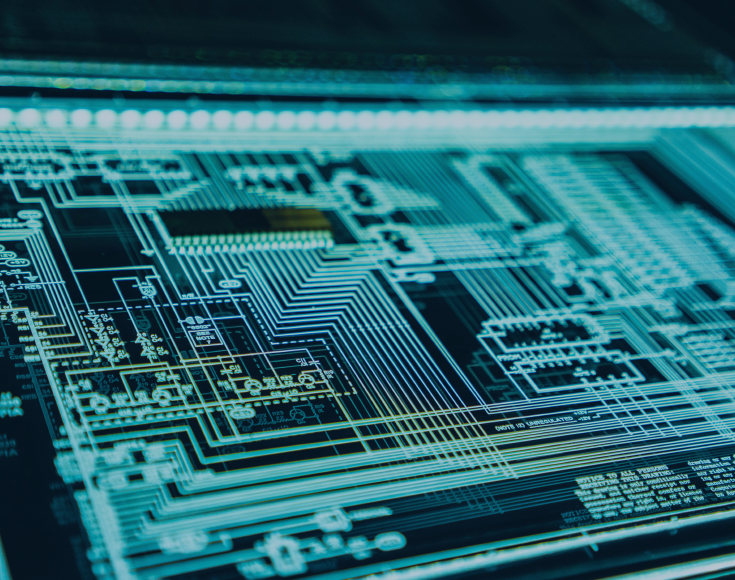The Importance of Cybersecurity in Protecting Your Business
Federal Reserve Chairman Jerome Powell, speaking on 60 Minutes, said, “the greatest risk to the economy is cyber risk.” Like you might be doing right now, Forbes author and tech CEO Kevin Lynch marvels that it’s not inflation, not another 2008-style financial crisis, or even a pandemic that has the chairman most worried. It’s a sobering sentiment—one that begs us to consider the importance of cybersecurity in any organization or business. Powell illustrated the risk, saying, “there are scenarios in which a large financial institution would lose the ability to track the payments that it’s making—where you would have a part of the financial system come to a halt.”
Does that make your stomach turn? It’s not just one man’s hyper-vigilance. The importance of cybersecurity in business is a modern reality. At the recent World Economic Forum, 650 WEF leaders surveyed cited cybersecurity as a “clear and present danger” alongside infectious disease, income inequality, and extreme weather events as the greatest threats to the global economy. Cybersecurity is a global problem with serious local implications.
While big-picture thinkers are asking the right questions about how we need to think about cybercrime on a global scale, we also need to address these issues on a local and individual level. There are attacks reported every two seconds of every day. In fact, the number of data breaches reported publicly in 2021, before the year’s fourth quarter had even started, already exceeded the total for all of 2020. If you’ve been battling phishing, spam, or other cyberattacks and wondering, “Are cyberattacks up in 2021?”—you are not alone, and it’s not your imagination.
What is Cybersecurity and Why is Cybersecurity Important?
The US Cybersecurity & Infrastructure Security Agency (CISA) defines cybersecurity as “the art of protecting networks, devices, and data from unauthorized access or criminal use and the practice of ensuring confidentiality, integrity, and availability of information.” We’ve noted here, and countless other places, that the volume of attacks is up—way up. What’s even more alarming is that the sophistication and organization behind these attacks have grown substantially. Cybercrime has become a more organized, methodical industry—and it’s getting more refined every day.
Cyberattacks at a Glance
Here’s a brief overview of some of the most common types of cyberattacks:
- Malware: Spyware, ransomware, viruses, and worms are common methods used to infiltrate systems.
- Phishing: Deceptive “socially engineered” links in emails or web links designed to look like legitimate content you should click on.
- Man-in-the-Middle Attacks: Hackers place themselves between a user and the network to steal sensitive information.
- Denial of Service (DoS) Attacks: These attacks flood systems, networks, or servers to disrupt services or clear the way for additional malicious activities.
It’s easy to laugh off the idea of an email from a “Nigerian prince” asking for money, but cybercrime has evolved far beyond these simple scams. Today, cybercriminals use highly sophisticated methods, often targeting companies with a specific focus. Your employees need to be vigilant. While hacks like JBS and SolarWinds grabbed headlines as some of the most prominent recent cyberattacks, countless others went unreported.
The industries most affected by malware in 2020 and 2021 include professional services, manufacturing, public administration, mining and utilities, retail, transportation, education, and finance. Cyberattacks are no longer just an IT issue—they’re a business risk that affects all sectors.
Real-World Example: The JBS Attack
In 2021, JBS, the world’s largest meat processor, was hit by a ransomware attack that temporarily closed plants in three countries. To stem the disruption to its supply chains and prevent food price inflation, JBS paid an $11 million ransom. This incident highlights the significant economic and operational impacts that cyberattacks can have, even on massive organizations. However, the reality is that smaller businesses, too, are increasingly vulnerable.
For your business, the impacts of cybersecurity lapses might include:
- Rising insurance premiums and liabilities
- Downtime caused by infections or disruptions
- Loss of trust with customers and potential legal consequences
- Data loss affecting both your internal systems and customer relationships
The consequences of data loss or other breaches can extend far beyond your organization, touching on customer security, employee privacy, and business relationships. As you might already realize, the importance of cybersecurity is more significant than ever. Fortunately, there are steps you can take to protect yourself, your organization, your partners, and your data.
Learn more about how to safeguard your business from cyber threats through resources from the Federal Trade Commission (FTC), specifically designed to guide small businesses in cybersecurity practices.
Cybersecurity Tools You Can Implement to Protect Your Business
The path to becoming more cybersecurity-savvy doesn’t have to be overwhelming, but it’s essential to implement the right tools. While there’s no one-size-fits-all solution, here are some of the best practices and tools you should consider:
- Antivirus Software: Though basic, antivirus software is crucial, especially with the rise of remote work arrangements. Be sure to choose solutions that can detect sophisticated threats.
- Cybersecurity Awareness: Many attacks succeed because of our trusting nature. Regular employee training on phishing, malware, and other attacks is essential. Learn more about cybersecurity awareness.
- Home Network Security: With more people working from home, securing personal networks is crucial. Ensure employees have proper cybersecurity practices in place for their home devices.
- Disaster Preparation and Recovery: Test your response to cyberattacks through tabletop simulations and IT drills. Be prepared for the worst, even if it never happens.
- Review Policies and Protocols: How stringent are your identity authentication processes? Review these protocols with a professional to ensure your organization’s security policies are up to date.
Why is Cybersecurity Critical in the 21st Century?
In 2020, business email compromise alone accounted for $1.8 billion in losses, according to complaints filed with the Internet Crime Complaint Center. This staggering figure highlights the massive impact that cybersecurity breaches can have on businesses. Whether it’s upgrading software, tightening security policies, providing employee training, or integrating new tools, it’s essential to stay ahead of cybercriminals. Cybersecurity is not a one-time fix, but an ongoing effort to stay secure.
For more insights on how to implement a comprehensive cybersecurity strategy for your business, consider exploring the NIST Cybersecurity Framework here.
Conclusion
Managing cybersecurity risk means managing business risk. Cybersecurity is a rapidly evolving field, and the threat landscape changes constantly. By staying proactive, training employees, and implementing a mix of cybersecurity tools, you can protect your business from the growing threat of cyberattacks. And remember, it’s not just about the tools you use—it’s about developing a cybersecurity culture throughout your entire organization.
At eMPiGO, we offer tailored cybersecurity services to help you safeguard your business from these ever-growing threats. Contact us today to develop a robust cybersecurity strategy that ensures the protection of your business, employees, and customers.



